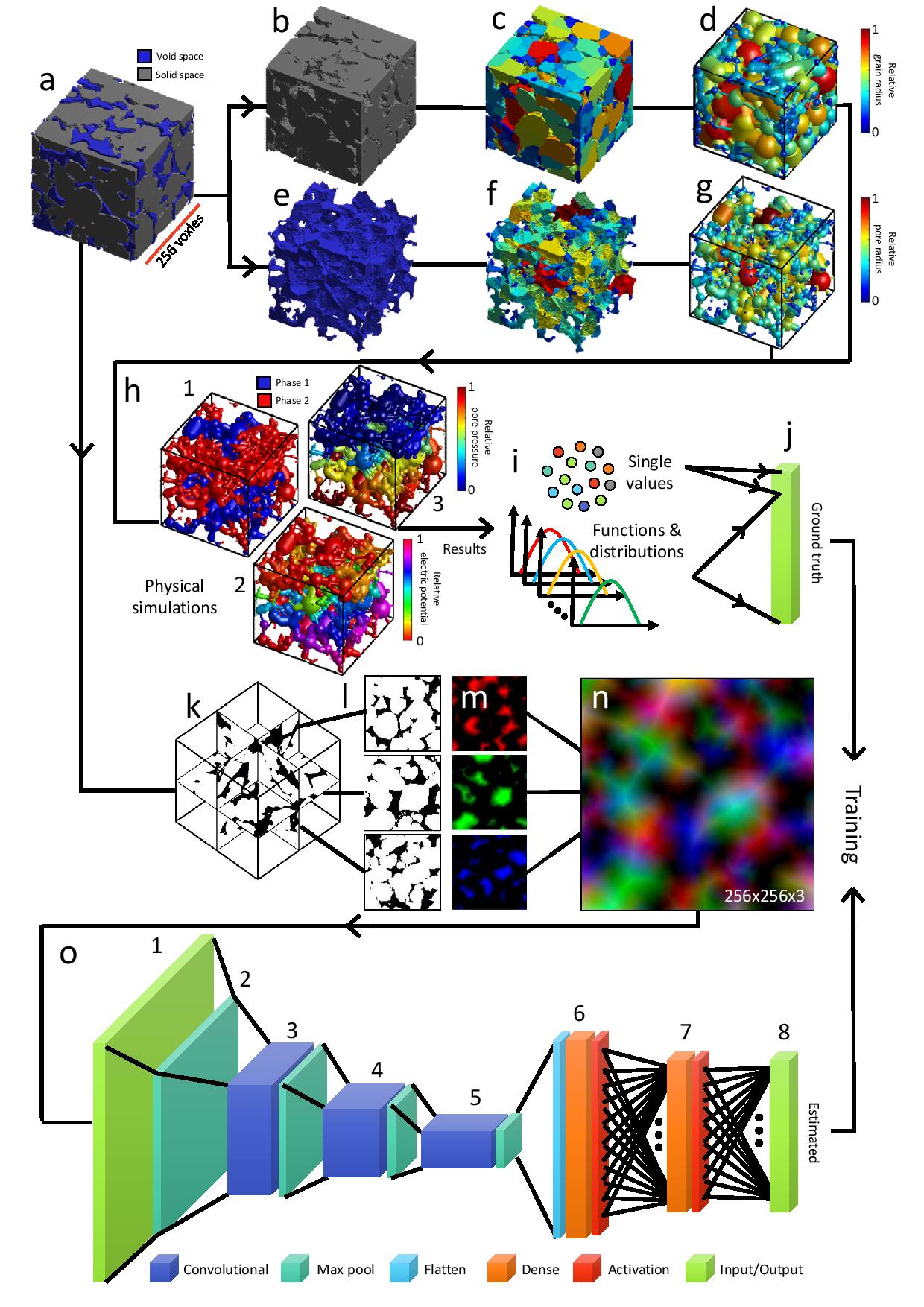DeePore: a deep learning workflow for rapid and comprehensive characterization of porous materials
DeePore is a deep learning workflow for rapid estimation of a wide range of porous material properties based on the binarized micro-tomography images. By combining naturally occurring porous textures we generated 17700 semi-real 3-D micro-structures of porous geo-materials with size of 256^3 voxels and 30 physical properties of each sample are calculated using physical simulations on the corresponding pore network models. Next, a designed feed-forward convolutional neural network (CNN) is trained based on the dataset to estimate several morphological, hydraulic, electrical, and mechanical characteristics of the porous material in a fraction of a second. In order to fine-tune the CNN design, we tested 9 different training scenarios and selected the one with the highest average coefficient of determination (R^2) equal to 0.885 for 1418 testing samples. Additionally, 3 independent synthetic images as well as 3 realistic tomography images have been tested using the proposed method and results are compared with pore network modelling and experimental data, respectively. Tested absolute permeabilities had around 13 % relative error compared to the experimental data which is noticeable considering the accuracy of the direct numerical simulation methods such as Lattice Boltzmann and Finite Volume. The workflow is compatible with any physical size of the images due to its dimensionless approach and can be used to characterize large-scale 3-D images by averaging the model outputs for a sliding window that scans the whole geometry.
PDF AbstractCode
Tasks
Datasets
Introduced in the Paper:
 DeePore
DeePore

